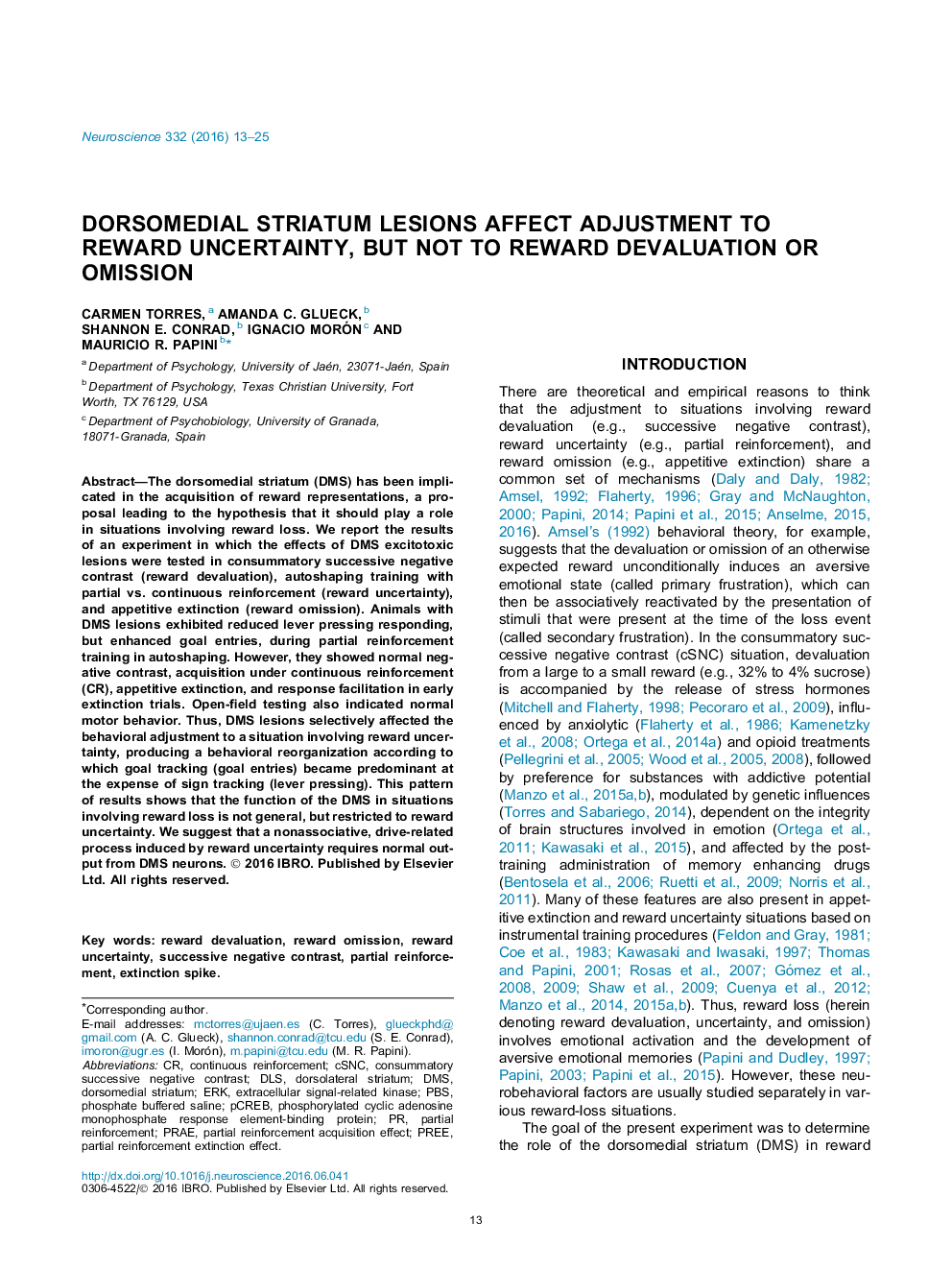| کد مقاله | کد نشریه | سال انتشار | مقاله انگلیسی | نسخه تمام متن |
|---|---|---|---|---|
| 6270805 | 1614744 | 2016 | 13 صفحه PDF | دانلود رایگان |
عنوان انگلیسی مقاله ISI
Dorsomedial striatum lesions affect adjustment to reward uncertainty, but not to reward devaluation or omission
ترجمه فارسی عنوان
ضایعات روده ای دیررسومنتال، تغییرات را برای عدم اطمینان به ارمغان می آورد، اما نه برای کاهش تعرفه یا بی عدالتی
دانلود مقاله + سفارش ترجمه
دانلود مقاله ISI انگلیسی
رایگان برای ایرانیان
کلمات کلیدی
PBSDLSERKDMSReward uncertaintypCREBReward omissionPREEdorsolateral striatum - striatum dorsolateraldorsomedial striatum - striatum dorsomedialPartial reinforcement extinction effect - اثر انقراض تقویت جزئیPartial reinforcement - تقویت جزئیcontinuous reinforcement - تقویت مداومPhosphate buffered saline - فسفات بافر شورReward devaluation - کاهش ارزش پاداشConsummatory successive negative contrast - کنتراست منفی متوالیSuccessive negative contrast - کنتراست منفی متوالیextracellular signal-related kinase - کیناز مرتبط با سیگنال خارج سلولی
موضوعات مرتبط
علوم زیستی و بیوفناوری
علم عصب شناسی
علوم اعصاب (عمومی)
چکیده انگلیسی
The dorsomedial striatum (DMS) has been implicated in the acquisition of reward representations, a proposal leading to the hypothesis that it should play a role in situations involving reward loss. We report the results of an experiment in which the effects of DMS excitotoxic lesions were tested in consummatory successive negative contrast (reward devaluation), autoshaping training with partial vs. continuous reinforcement (reward uncertainty), and appetitive extinction (reward omission). Animals with DMS lesions exhibited reduced lever pressing responding, but enhanced goal entries, during partial reinforcement training in autoshaping. However, they showed normal negative contrast, acquisition under continuous reinforcement (CR), appetitive extinction, and response facilitation in early extinction trials. Open-field testing also indicated normal motor behavior. Thus, DMS lesions selectively affected the behavioral adjustment to a situation involving reward uncertainty, producing a behavioral reorganization according to which goal tracking (goal entries) became predominant at the expense of sign tracking (lever pressing). This pattern of results shows that the function of the DMS in situations involving reward loss is not general, but restricted to reward uncertainty. We suggest that a nonassociative, drive-related process induced by reward uncertainty requires normal output from DMS neurons.
ناشر
Database: Elsevier - ScienceDirect (ساینس دایرکت)
Journal: Neuroscience - Volume 332, 22 September 2016, Pages 13-25
Journal: Neuroscience - Volume 332, 22 September 2016, Pages 13-25
نویسندگان
Carmen Torres, Amanda C. Glueck, Shannon E. Conrad, Ignacio Morón, Mauricio R. Papini,
